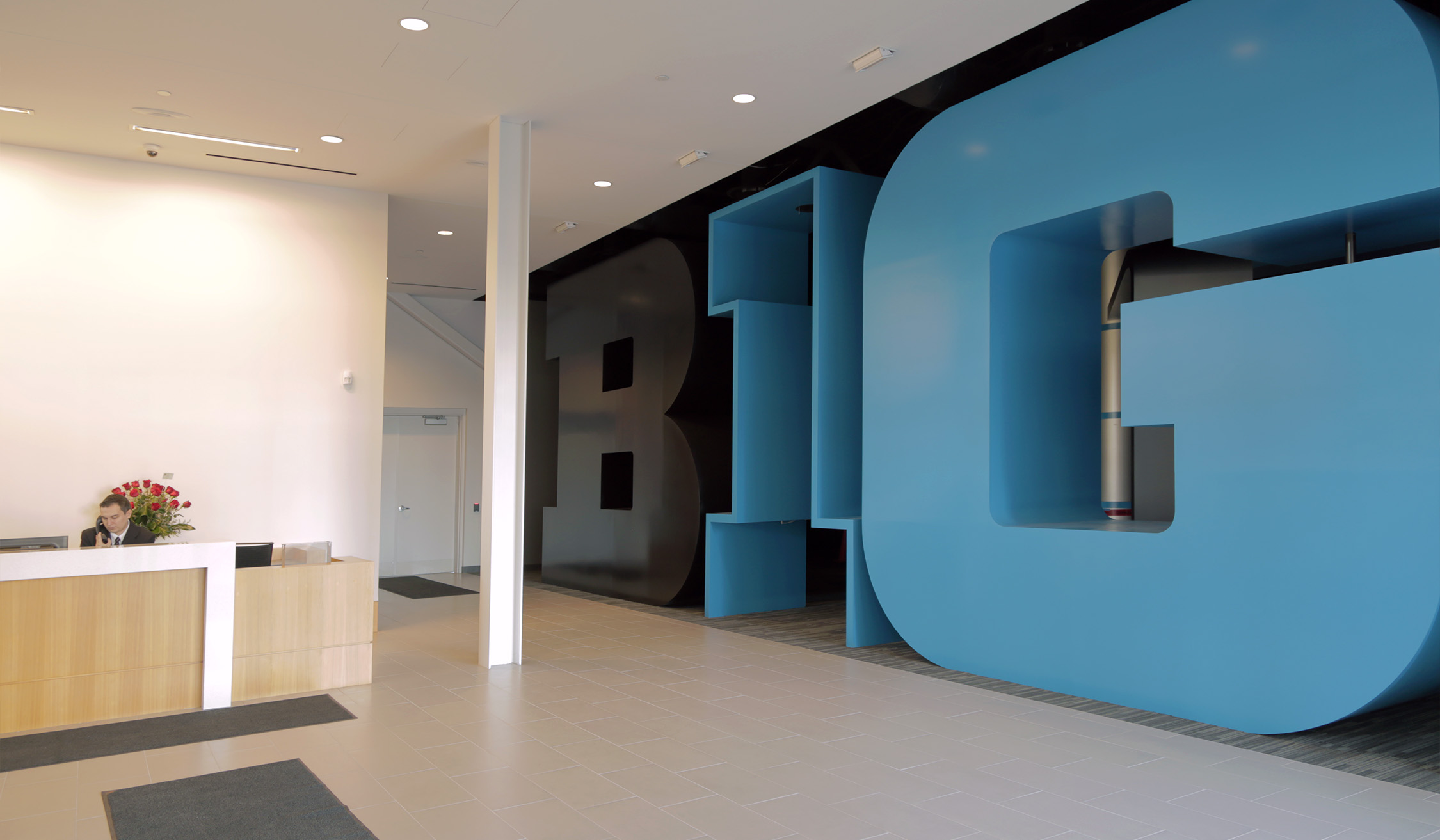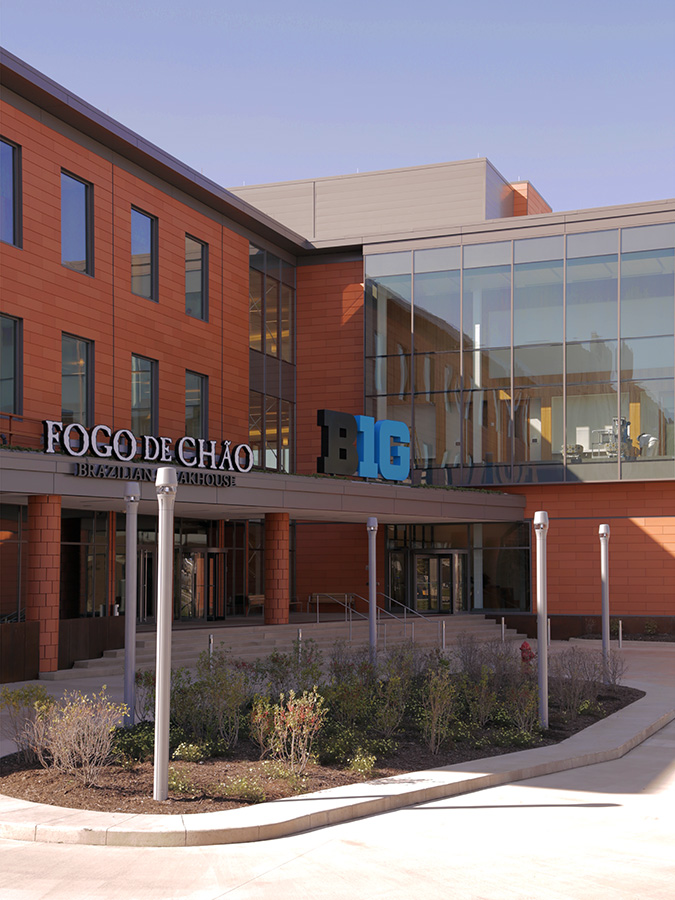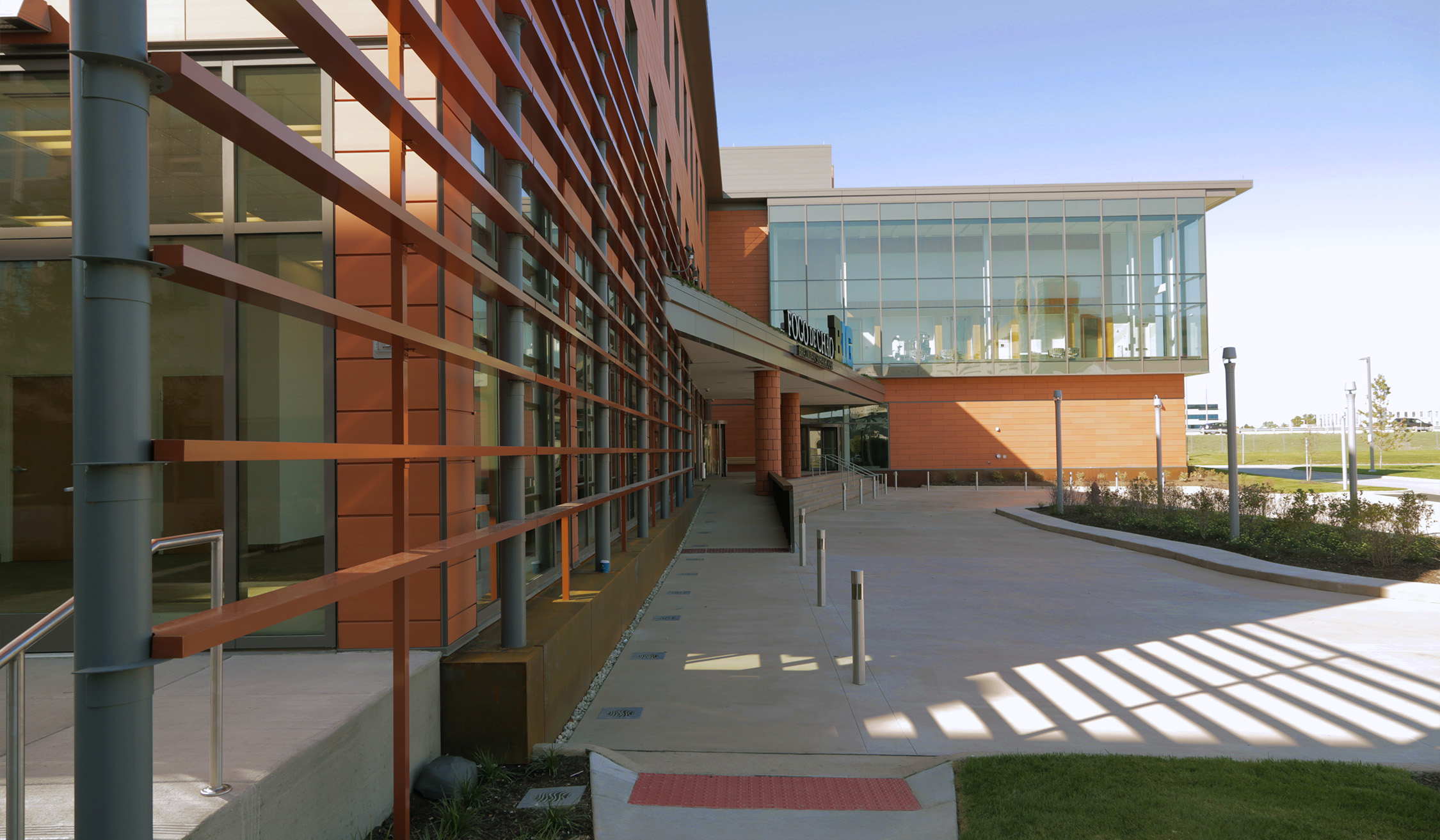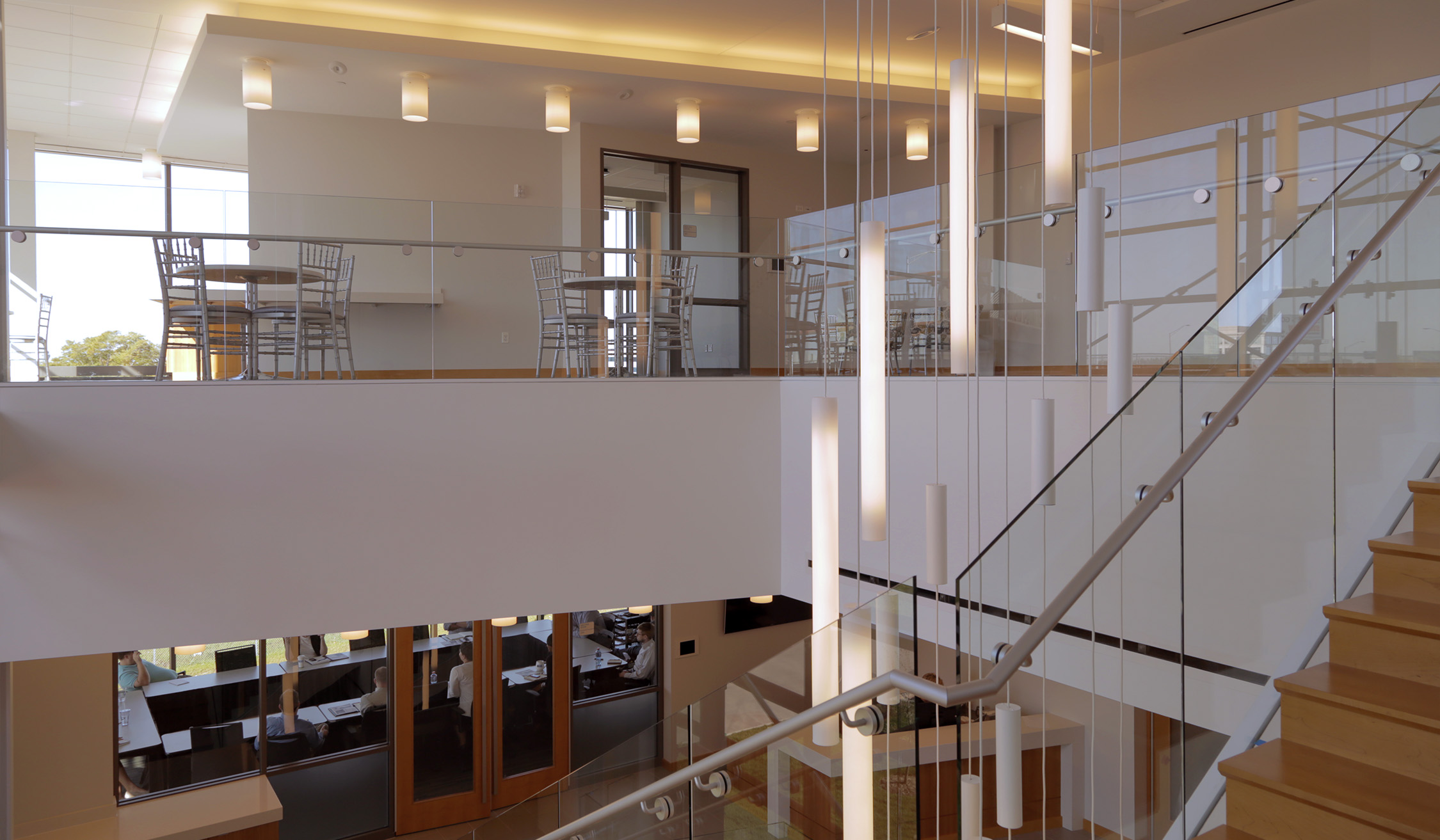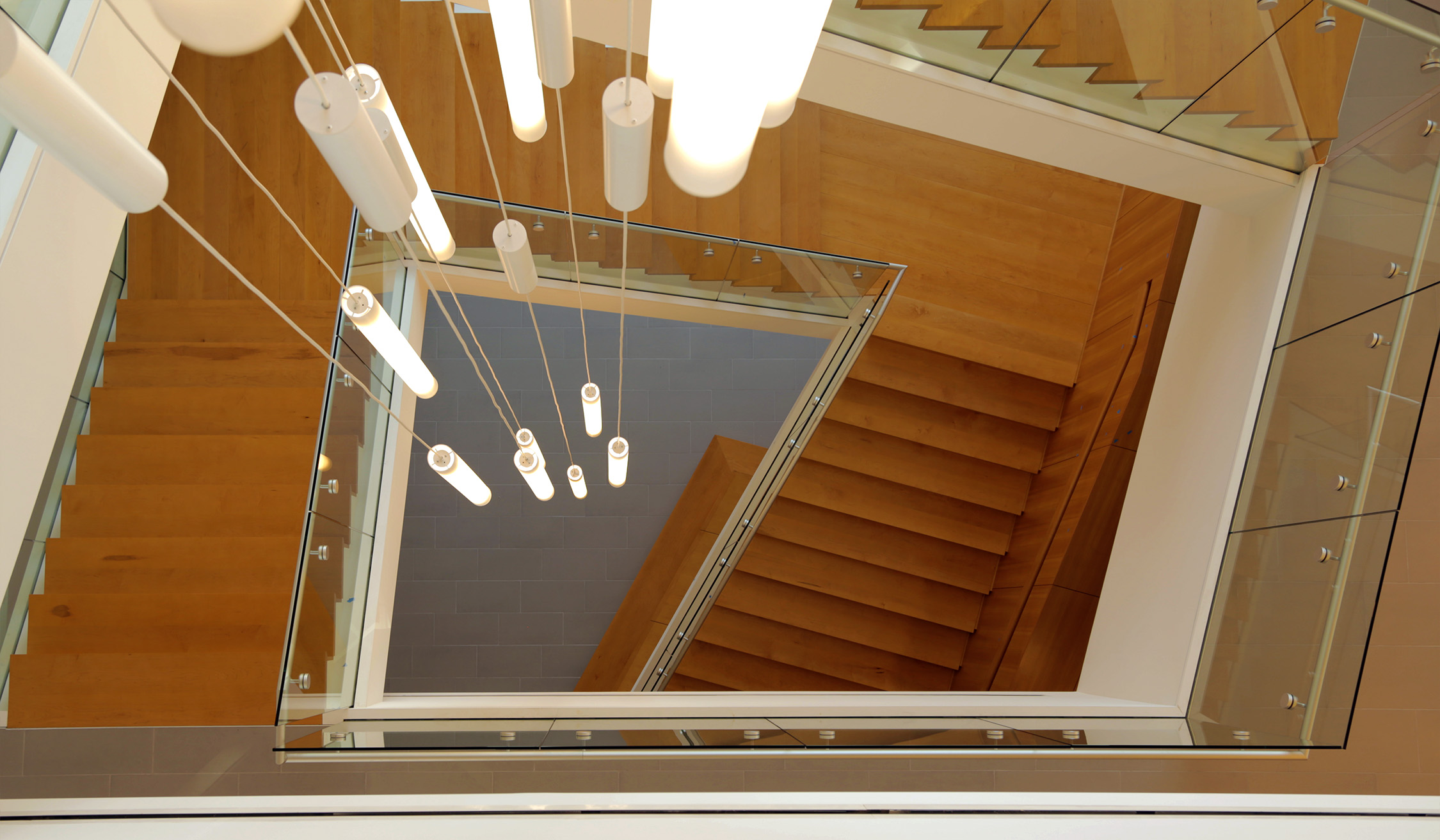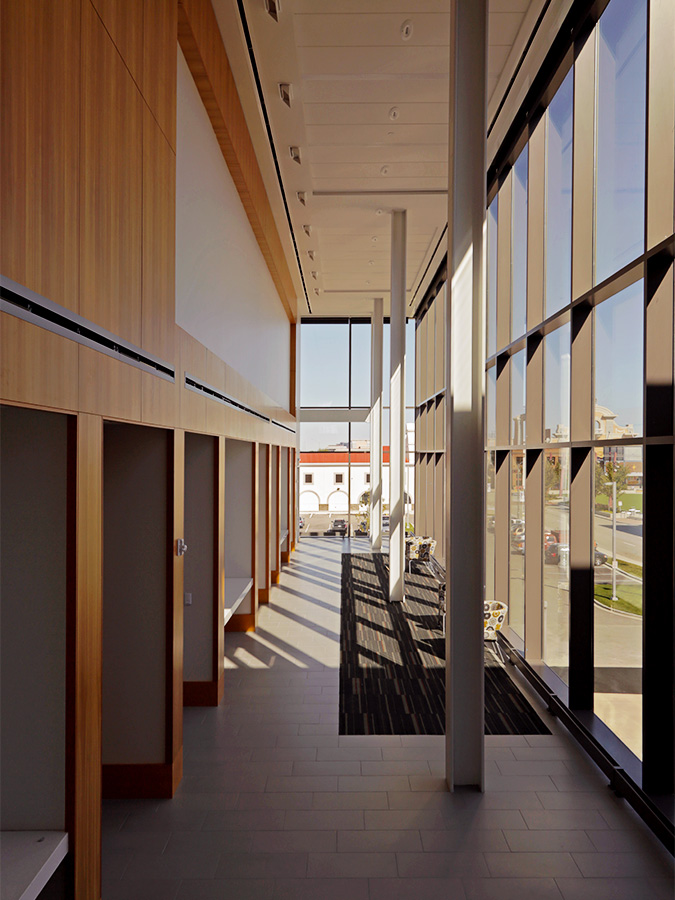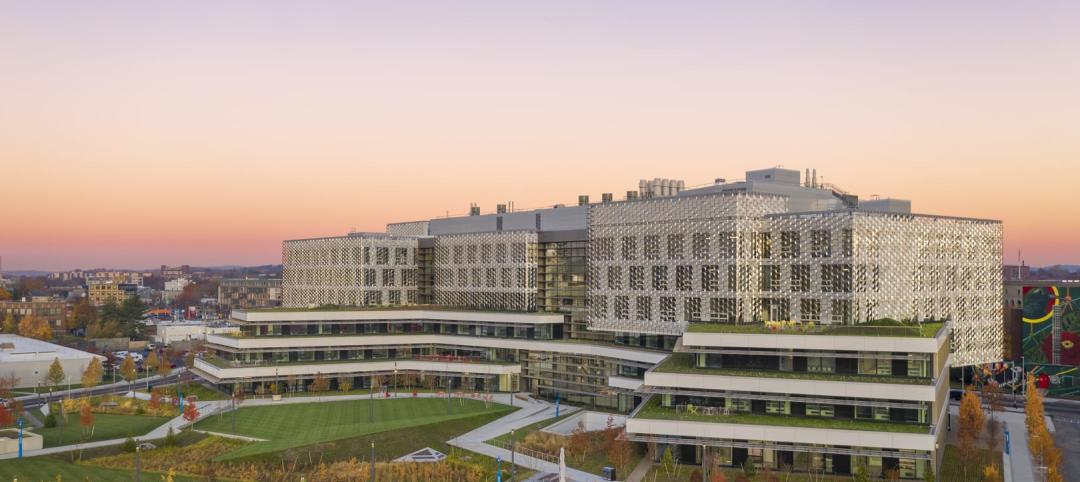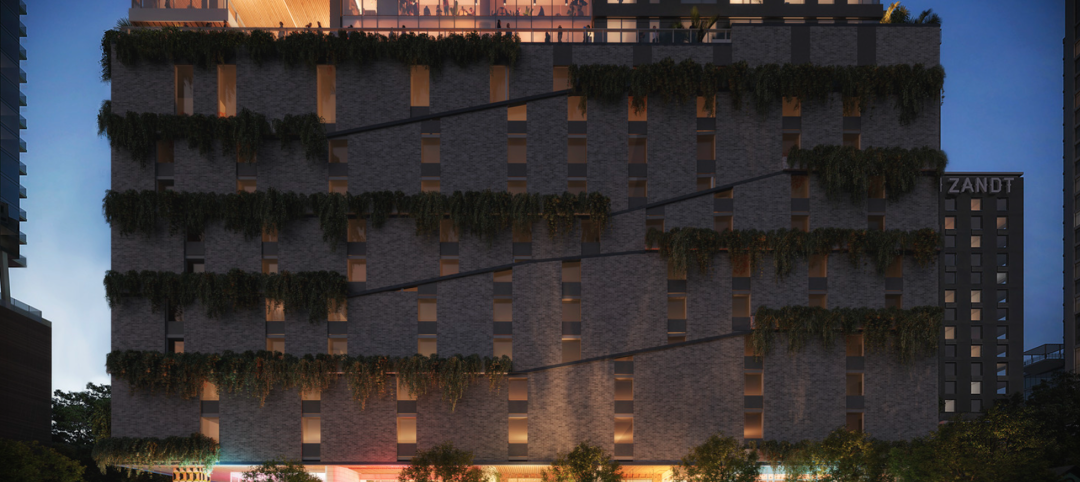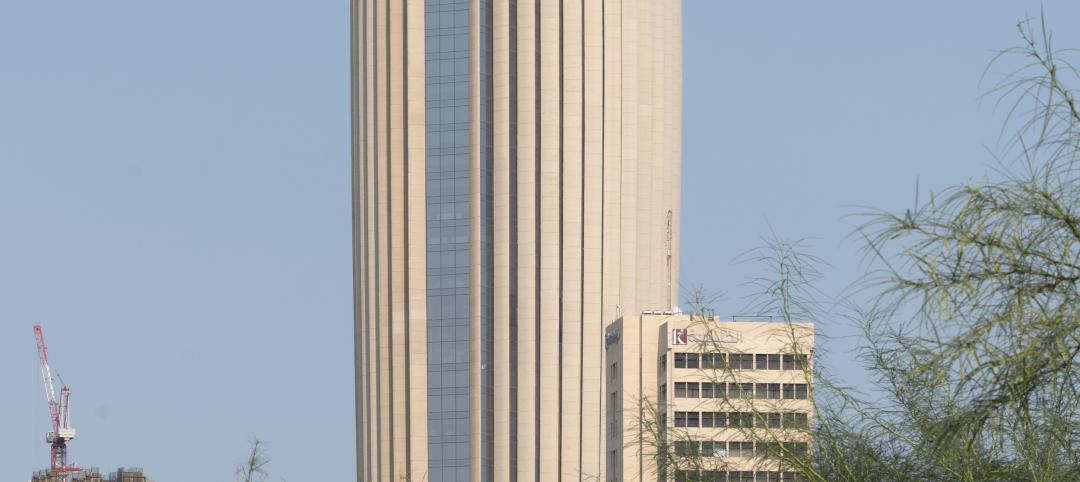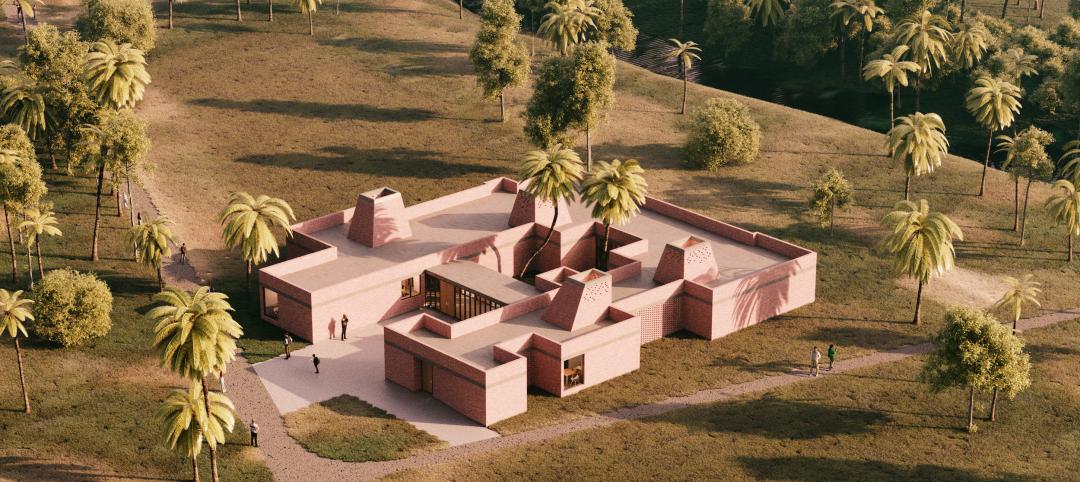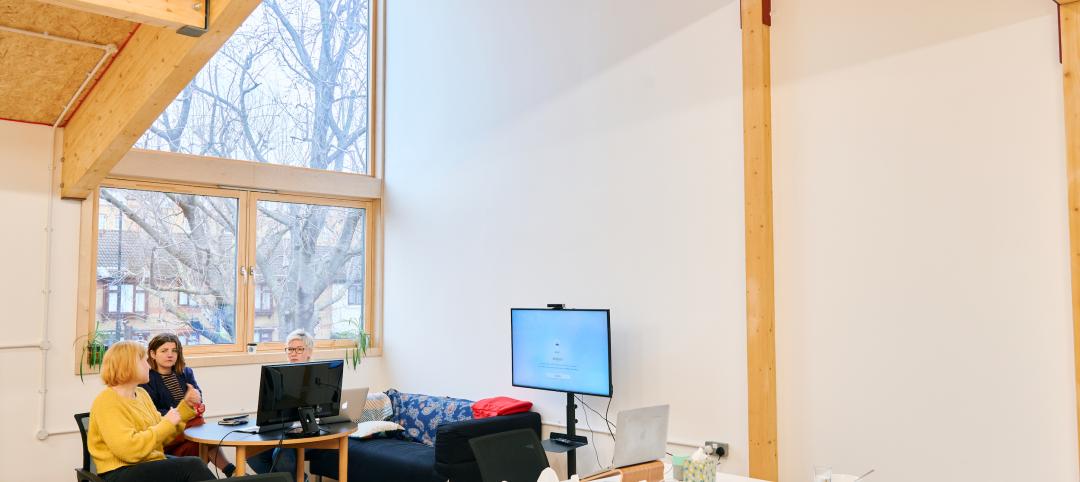With 12 institutions, 280 national championships, and 120 years of historic intercollegiate sports, the Big Ten Conference will continue its mission of “honoring legends and building leaders” in a new $20 million, 50,000-sf headquarters in Rosemont, Ill.
The mixed-use HQ features a 3,500-sf interactive museum on the first floor showcasing past and present legends. The building also includes a conference center on the second floor for more than 130 annual Big Ten academic and athletic meetings that educate tomorrow’s Conference leaders. Oh, and don’t forget the 10,000-sf Brazilian steakhouse, Fogo de Chao, on the first floor. Athletes need to eat, too.
The facility will also include an office for the Village of Rosemont, a Big Ten visitor’s center, catering kitchen, fitness center, dining area, office space for the Conference’s 40 on-site staff members, and a third floor video command center, where conference officials can train and monitor games on eight, 60-inch LCD screens and one 130-inch screen with separate, sound-isolated booths. Conference officials also have the ability to broadcast on the Big Ten Network from the command center.
“The completion of our hew headquarters has given us the space needed for our staff to function properly while leaving room for future growth,” said Brad Traviolia, Deputy Commissioner, Big Ten Conference. “The state-of-the-art conference center allows us to host gatherings of leaders from our member institutions as well as from across the country.”
Fast-tracked construction
Fast-tracked to meet the first of the Conference’s meetings last year, Leopardo Companies, Inc. (www.leopardo.com), the project’s contractor, worked with base-building and other space-specific architects as well as the building’s structural and MEP engineers to complete the facility in just under a year, opening in October 2013.
Beginning construction in the late fall of 2012 created a challenge for Leopardo, which had to battle Chicago’s severe winter weather on multiple occasions.
“We needed to get the pad constructed and complete all the underground utility work as quickly as possible, pouring the slab on grade before we even erected the steel to save time and money for the client, relative to the imminent winter weather at the time,” said Leigh McMillen, vice president, Leopardo. Even so, a massive wind tunnel threatened the completion of the second and third floor concrete, and a temporary enclosure had to be rebuilt during construction before successfully completing the slab.
Once construction started, the decision was made to finish the interior of the museum space instead of just a core and shell build out, with the same fast-tracked delivery. Leopardo suggested a depressed slab, or 6-inch computer access floor, to provide the flexibility to both move interactive displays as needed over time and also the right amount of cooling/heating. With a depressed slab, Leopardo successfully finished the slab-on-grade pour before the weather worsened, saving money on winter conditions and expediting the schedule. Improved safety was another benefit of having the slab-on-grade poured early. Working off of a flat, finished concrete slab ensures each ladder, scaffold and lift had a firm footing to the ground.
A unique terra cotta rain screen was specified for the building’s exterior in orange to resemble real brick. Manufactured in Europe, the 1x4-foot clay panels hang on a steel rail system that’s mounted to the building’s exterior framing. In its highest profile application to date and its debut in the Chicago area, Leopardo teamed with another Midwest contractor to meet the distinctive challenges that came with its installation.
"I think the idea and execution of a multi-functional space?office, museum and restaurant?is a good example of the construction team finding an innovative solution," said Brad Traviolia, Deputy Commissioner, Big Ten Conference. "Working with Leopardo on solutions like this make the building what it is today and we are extremely pleased with the finished product."
Located in the heart of Rosemont’s new MB Financial Bank entertainment district, the most recognized brand in intercollegiate sports history just got BIGger.
Related Stories
AEC Tech Innovation | Apr 27, 2023
Does your firm use ChatGPT?
Is your firm having success utilizing ChatGPT (or other AI chat tools) on your building projects or as part of your business operations? If so, we want to hear from you.
Concrete Technology | Apr 24, 2023
A housing complex outside Paris is touted as the world’s first fully recycled concrete building
Outside Paris, Holcim, a Swiss-based provider of innovative and sustainable building solutions, and Seqens, a social housing provider in France, are partnering to build Recygénie—a 220-unit housing complex, including 70 social housing units. Holcim is calling the project the world’s first fully recycled concrete building.
Multifamily Housing | Apr 21, 2023
Arlington County, Va., eliminates single-family-only zoning
Arlington County, a Washington, D.C., community that took shape in the 1950s, when single-family homes were the rule in suburbia, recently became one of the first locations on the East Coast to eliminate single-family-only zoning.
Architects | Apr 21, 2023
Architecture billings improve slightly in March
Architecture firms reported a modest increase in March billings. This positive news was tempered by a slight decrease in new design contracts according to a new report released today from The American Institute of Architects (AIA). March was the first time since last September in which billings improved.
Green | Apr 21, 2023
Top 10 green building projects for 2023
The Harvard University Science and Engineering Complex in Boston and the Westwood Hills Nature Center in St. Louis are among the AIA COTE Top Ten Awards honorees for 2023.
Multifamily Housing | Apr 19, 2023
Austin’s historic Rainey Street welcomes a new neighbor: a 48-story mixed-used residential tower
Austin’s historic Rainey Street is welcoming a new neighbor. The Paseo, a 48-story mixed-used residential tower, will bring 557 apartments and two levels of retail to the popular Austin entertainment district, known for houses that have been converted into bungalow bars and restaurants.
Design Innovation Report | Apr 19, 2023
Reinforced concrete walls and fins stiffen and shade the National Bank of Kuwait skyscraper
When the National Bank of Kuwait first conceived its new headquarters more than a decade ago, it wanted to make a statement about passive design with a soaring tower that could withstand the extreme heat of Kuwait City, the country’s desert capital.
Design Innovation Report | Apr 19, 2023
HDR uses artificial intelligence tools to help design a vital health clinic in India
Architects from HDR worked pro bono with iKure, a technology-centric healthcare provider, to build a healthcare clinic in rural India.
Design Innovation Report | Apr 19, 2023
Meet The Hithe: A demountable building for transient startups
The Hithe, near London, is designed to be demountable and reusable. The 2,153-sf building provides 12 units of business incubator workspace for startups.
Metals | Apr 19, 2023
Sherwin-Williams Coil Coatings releases new color forecast for architectural metal coatings
The Coil Coatings division of Sherwin-Williams has released its latest color forecast, FUSE, for architectural metal coatings. The report aims to inspire architects, product manufacturers and original equipment manufacturers (OEMs) in the coil and extrusion market over the next 3-5 years and beyond.


